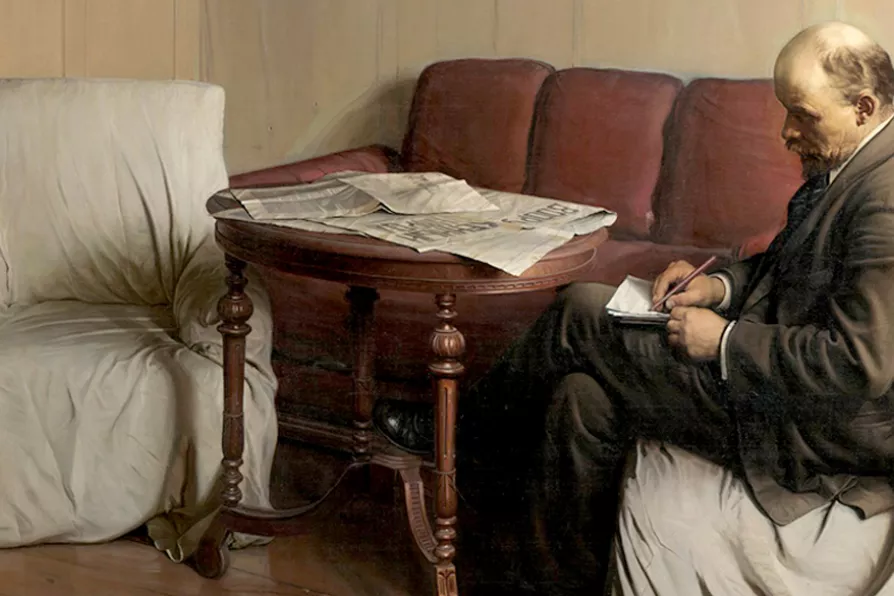RITA DI SANTO draws attention to a new film that features Ken Loach and Jeremy Corbyn, and their personal experience of media misrepresentation

 Lenin in Smolny, by Isaac Brodsky, 1930 (detail)
[Tretyakov Gallery/CC]
Lenin in Smolny, by Isaac Brodsky, 1930 (detail)
[Tretyakov Gallery/CC]
IN the summer of my 15th year, in a room with a view of Loch Linnhe, I read The Sixth Fontana Book of Great Ghost Stories. I had no presentiment of the enduring influence of this 35p paperback.
I still have my copy: it includes six well-written and entertaining excursions into the supernatural and two explorations of more ambiguous territory: The Door In The Wall by HG Wells, and The Grey Ones by JB Priestley. These stories have several features in common. They were written by socialists, they undermined the anthology’s title by failing to include a single ghost and – more significantly – they are narratives of transcendent complexity and weird resonance.
For me, as a teenage reader, they were a revelation. In a few thousand words – without breaking the spell of their relentlessly engaging plots – their authors played with structure, language and symbol to challenge perception and provoke speculation.

CARL DEATH introduces a new book which explores how African science fiction is addressing climate change













